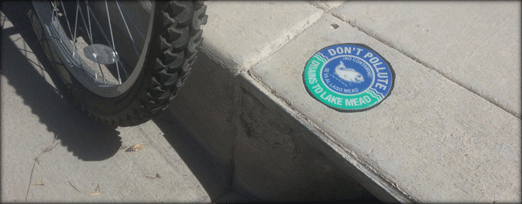Hundreds of litres of PTFE lubricant go into the environment each year from bicycles.
The problem is, most street drains lead to rivers without much filtration.
Silicone, petrochemicals and PTFE are often in bike fluids, and all will eventually come off the bike.
Directly into a river mountain biking, or via a drain, it's a problem.
Learn more here.
Petrochemicals coming off your bike go into drains and from
there
into rivers. Petrochemical chain oil goes
into your
garden when you wash your bike, in the street when it
rains and in local woodland when you ride in the wet.
This can cause harm to aquatic life. Petrochemicals take a
long time
to break down if at all.
You wouldn't pour engine oil down
the drain, so why allow chain
oil to go down the drain?
A number of brands exploit a rule which says a lubricant
can be classed 'biodegradable' if it's just 60%
biodegradable
within 28 days. This rule assumes the remaining
40% is biodegradable. This is an erroneous
assumption. some petrochemical lubricants
with PTFE making this claim are not anywhere near 100% biodegradable. A nice loop hole for our competitors to exploit.
We use plant based ingredients. These are fully biodegradable and don't use any animal by-products.
All our products are both 60% biodegradable within 28 days, and 100% biodegradable within 60 days.
We use a tiny amount of denatonium benzoate
in our Dry Chain Wax and Agent Apple at around 10 parts per million.
This molecule isn't biodegradable, but is environmentally inert and safe for human consumption. It adds a bitter taste
to stop people drinking our products with plant based alcohol in.
This means these two products are 99.9999% biodegradable.
All the others are 100% biodegradable.
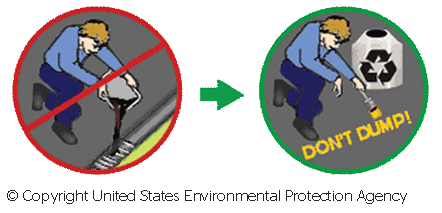
PTFE, is a polyflourenated chemical. PTFE is
short for polytetrafluoroethylene.
A likely carcinogen is made
in it's production.
It is claimed, that this causes
birth defects, and did so around the area where PTFE in
made in the USA.
Read from the BBC on this birth
defect issue here.
PTFE uses PFOA in production, a 'likely carcinogen'
according
to the United States Environmental
Protection Agency.
Click here for more information
on this verdict.
PTFE accumulates in
the
food chain
PTFE is NOT biodegradable. Despite this, some
brands claim their PTFE lubes are biodegradable.
Click here for a Guardian piece with Greenpeace
with information on the persistence in the
environment of polyfluorinated chemicals like PTFE.
Click below for a BBC article on the impact of
PTFE production.
PTFE should not be used in bike chain lubes.
We don't use PTFE.
We've formulated our products to work well without PTFE.
We don't use any other polyfluorinated chemicals.

a problem today.
Plastic brush bristles wear out into the environment,
so if you're using a plastic bike cleaning brush, bits of
plastic might wear off.
Silicone is similar to plastic and accumulates in the
environment. Numerous bike fluid companies use
silicone, whilst claiming to be eco-friendly for their
other products. Silicone should not be used.
Click below for more on plastic pollution in our oceans.
We use plant based bristles on our brushes.
We don't use silicone.
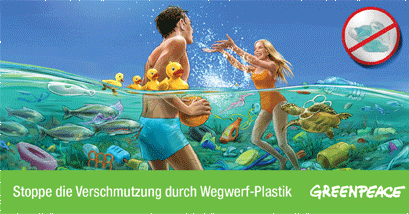
Plastic production and landfill are an environmental problem
we're solving. All companies should use recycled packaging
to make their products. They don't, because it costs about
10% more, and unfortunately people running other
companies either don't consider the environment, or
they prefer money to doing the right thing.
New plastic production takes around 5% of global oil use.
New plastic has a higher carbon footprint than recycled
plastic.
If no company uses recycled plastic, there is less
market demand, and less
incentive to recycle. This
means more plastic going to landfill or being
incinerated, both of which are bad for the environment.
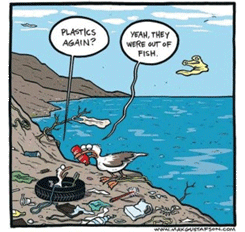
We use recycled plastic for our 100ml and 30 ml bottle, and Eco Rider Deluxe set tubs.
These take less energy to produce, and help provide a market demand for recycled plastic, which
encourages councils to encourage recycling.
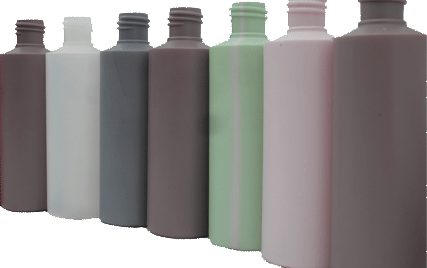
Climate change
Other brands use virgin plastic for their bottle packaging.
This has a higher carbon footprint than recycled plastic.
Most other companies don't use LED lighting or make any
serious effort to reduce their carbon footprint.
They see the short term only
Climate change kills around 60,000 people a year.
They're usually in poorer countries.
We care about this, and further climate change will have
an impact on you soon too if not tackled.
There is a scientific consensus on climate change, and the
World Health Organization is clear about the human
misery and impact. Check out their website here.
We use recycled plastic, LED lighting in our office and make a serious effort to reduce the carbon footprint of everything we do.
Air freight is mostly avoided.
Use of recycled plastic means a lower carbon footprint of product production and disposal.
Using plant based ingredients means a lower carbon footprint - we're funding growth of plants which absorb CO2 from the air.
Our products are basically stored carbon dioxide from plants. And when they are used up, this goes onto the soil, biodegrades and gets
absorbed by plants. A great way of taking carbon dioxide, a climate changing gas, out of the air!
The Great Loophole which allows a PTFE lubricant with petrochemicals to be labeled 'biodegradable'.
© 2022
Green Oil UK Limited
Registered Office: Green Oil UK Limited, Unit CC.106, Cocoa Studios, The Biscuit Factory, 100 Drummond Road, Bermondsey, Southwark, London, SE16 4DG, England, United Kingdom.
Registered in England and Wales, No. 6470586. VAT: 980 6213 19
Contact us on 020 7274 8725
Tweet us @GreenOil. Find us on Facebook: Facebook.com/BicycleOil
Find us on Instgram:
Product images from this site may be used for use in selling our products.



